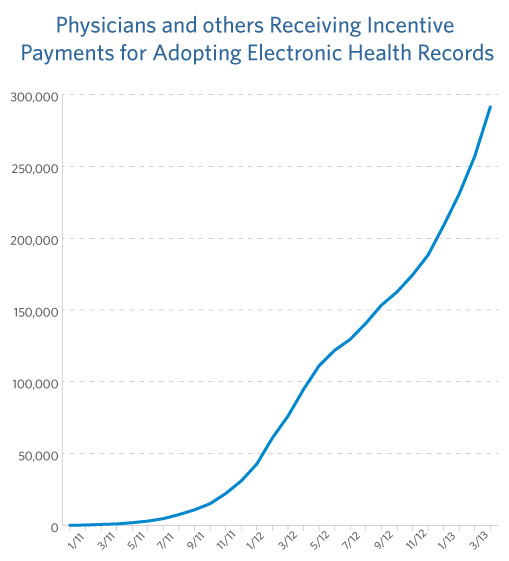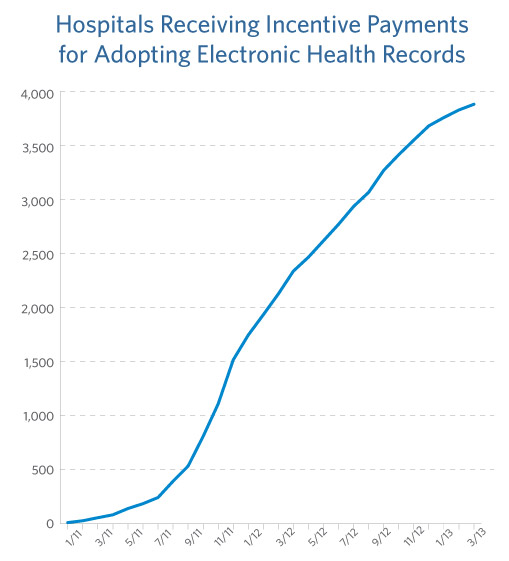
The Obama Administration has made improving the quality and efficiency of the health care system a priority. Already we have put in place new payment and care models that reward doctors and hospitals for providing high quality and efficient care to their patients. We are working with hospitals to identify gaps in patient safety and ways to reduce preventable readmissions that are harmful and expensive. Health information technology (IT) is critical to making these new models work.
Until the President made investments in health information technology by signing the American Recovery and Reinvestment Act, our health care system ran largely on paper. In 2008, only 17 percent of physicians were using advanced electronic health records and just 9 percent of hospitals had adopted electronic health records. Information is the lifeblood of modern medicine, but information can’t get where it needs to go when it’s on paper. That means doctors didn’t have the best information at their fingertips when making diagnosis and treatment decisions; that patients didn’t have easy access to their medical records; and that information is dropped when patients leaving a hospital transition to a nursing home or home care.
That’s why the President put in place a series of policies to promote adoption of electronic health records as well as their deployment in ways that improve care quality while reducing costs. This includes:
- Medicare and Medicaid incentives for the adoption and use of electronic health records;
- Technical assistance and direct support for primary care practices and rural practitioners to help them overcome barriers to adoption;
- Creation of certification standards that give providers confidence in what they’re buying and to ensure Medicare and Medicaid dollars are well-spent.
Equally important, the Affordable Care Act has created an environment where providers feel they need to invest in health IT to improve the value of the services that they provide.

This week, HHS announced that we have reached new milestones in wiring the health care system. More than half of eligible providers – doctors, dentists and other eligible providers – have qualified for and received incentive payments for adoption of certified electronic health records, exceeding the Department’s target for the end of 2013. Moreover, nearly 80 percent of eligible hospitals have reached this milestone.

The increase has been rapid; adoption of electronic health records doubled among office based physicians from 2008 to 2012 and quadrupled in hospitals. Incredible progress has been made, thanks to the hard work of our health care providers and public policies that support their efforts, like the Recovery Act and the Affordable Care Act.

